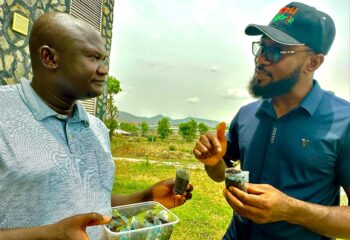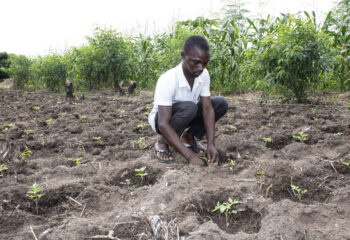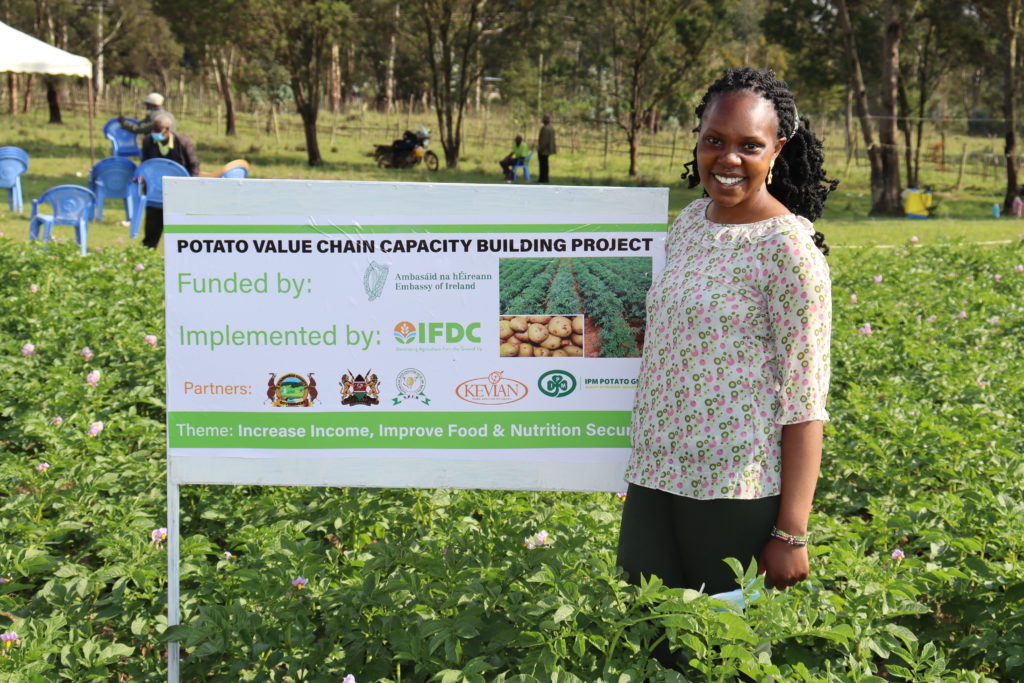
While the current drought in Africa has been particularly devastating to small-scale farmers who are already vulnerable to climate-related disruptions, conflict continues to displace people, disrupt livelihoods, and harm economies. Meanwhile, the COVID-19 pandemic and related containment measures have exacerbated preexisting drivers of fragility, widened inequalities, and exposed structural weaknesses in local and global food systems. These factors disproportionately affect Africa’s population – impacting the poorest most of all.
For many years, Nyandarua County was known as Kenya’s food basket. Farms were productive, and rains were adequate, resulting in high surplus production. Sufficient land was also available for farmers to plant their crops. However, many different elements have caused Kenya’s production levels to deteriorate. Deforestation of the Aberdare Forest, monocropping, soil infertility, excessive subdivision of land due to an increase in population, use of poor or recycled seeds, increased cases of pests and diseases, a prolonged dry season, plus poorly timed planting have contributed to the yield decline that many Kenyan farmers are facing.
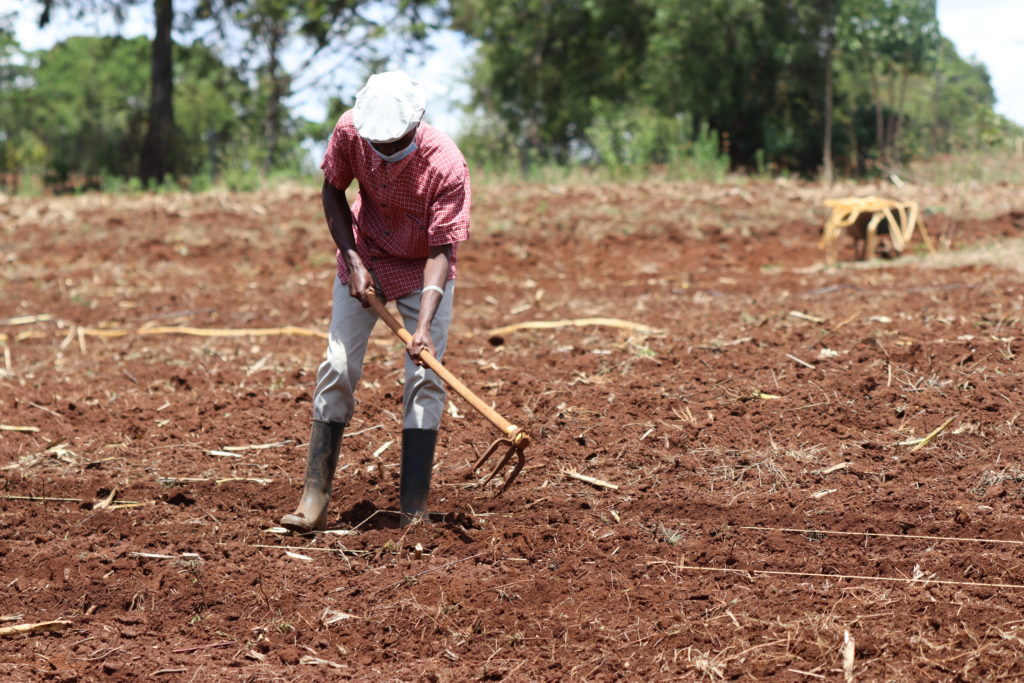
Ann Gitari, a farmer in Nyandarua, shared: “The Nyandarua we have today is not the same as it was when I was growing up. Things have really changed. Rains are no longer predictable, and our farms are not as productive as they used to be.”
The Potato Value Chain Capacity Building (PCB) project has been working to address these factors through the Farmer Field Business School (FFBS) model. The model’s strength stems from the integration of various components that improve farming knowledge, skills, and practices, especially for women. The FFBS model promotes sustainable agricultural practices, market engagement, gender and youth equity, food and nutrition security, group empowerment, and monitoring and evaluation. These components also improve results across the food and nutrition security spectrum.
Through the FFBS model, farmers participating in the PCB project have been trained to maximize productivity on their farms by adopting new technologies that are more efficient and sustainable. The model uses a hands-on approach to instill practical knowledge and skills in farmers on improved farming practices, from land preparation through harvesting and post-harvest handling. Some other practices taught in the FFBS include soil testing, spacing during planting, certified seeds, correct use of agrochemicals, good recordkeeping, weeding, blight detection, and frost management. By adopting good agricultural practices, farmers have produced more food to feed their households and to sell at the market. “The training is structured to create a lasting impact on many farmers in our area. For example, demonstration plots are used to reveal how the technology can be used to conserve water during potato planting and provide a great environment for the development of tubers,” says Rosemary Wanjiru.
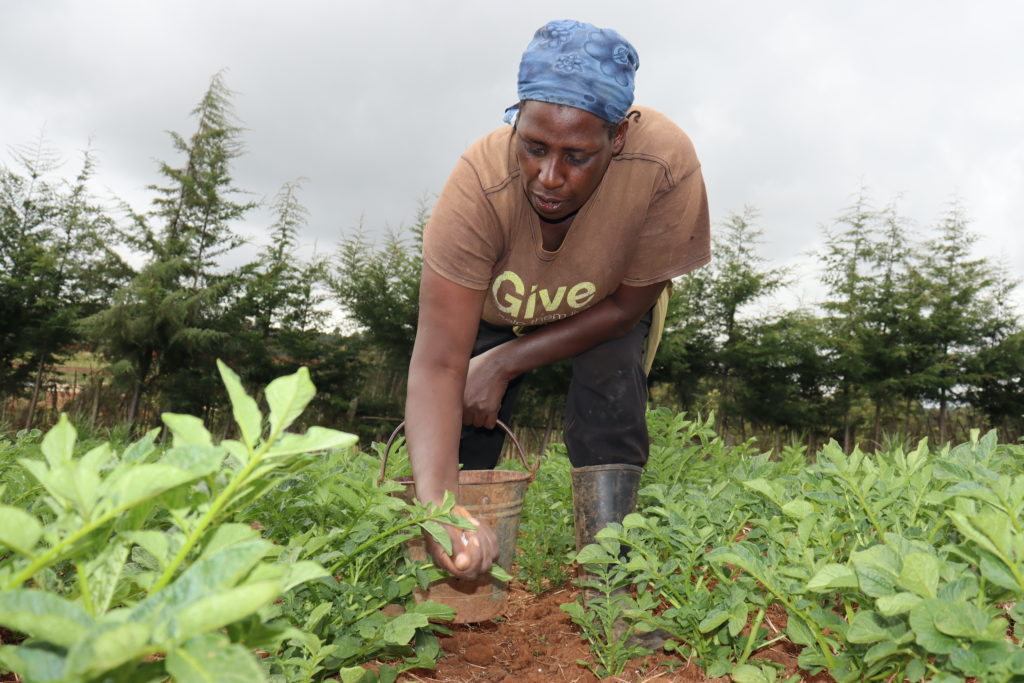
Crops are grown in various soil types with different fertilizer requirements, depending on the soil’s health and condition. The overapplication of nutrients can cause imbalances in the soil and eventually affect the health of the soil, environment, and crops. As a result, many farmers experience poor production levels, despite applying fertilizer. IFDC, through PCB, has been helping farmers learn the importance of soil testing, which helps to address the nutritional content of their soil and the level of its acidity. Consequently, farmers have also been connected to reliable soil testing companies that can provide recommendations for the fertilizer type and quantity to be used at any stage of the crop. Soil testing and site-specific recommendations have helped to ensure increased production while also saving the money that would have been used to purchase excessive amounts of fertilizer. The Nyandarua County Department of Agriculture has also expressed interest in the aspects of soil testing taught during PCB field trainings. During field days, agricultural stakeholders, including agrochemical and fertilizer companies, the International Centre of Insect Physiology and Ecology (icipe), and the International Institute of Tropical Agriculture (IITA) have been instrumental in emphasizing the need for soil testing.
Local farmer, Margaret Wangui, recounts her experience with the PCB project: “Since 2018, I have observed a significant transformation from what I used to do. I now understand the need to conduct soil testing, and I apply the right fertilizers today. I have seen improved productivity and gradual growth in profits.”
Over the years, farmers in Africa have lost out on much crop productivity and income because they use low-quality seeds with little to no germination capacity. For example, farmers’ seeds in Nyandarua County had been reused and replanted for so long that their genetic potential has deteriorated, making them increasingly prone to pests and diseases. However, through PCB, farmers have demonstrated the need for certified seeds with higher genetic potential and their increased resistance to pests and diseases. As a result, many farmers have embraced the planting of certified seeds, which has resulted in increased production. From the harvest results, farmers can learn about the need for planting high-quality seeds and where they can purchase the seeds from genuine dealers and at reliable prices; IFDC is playing a pivotal role in linking farmers to certified seed suppliers. As a result, some empowered farmers are forming groups to produce clean seeds and distribute them to the rest of the farmers in their community.
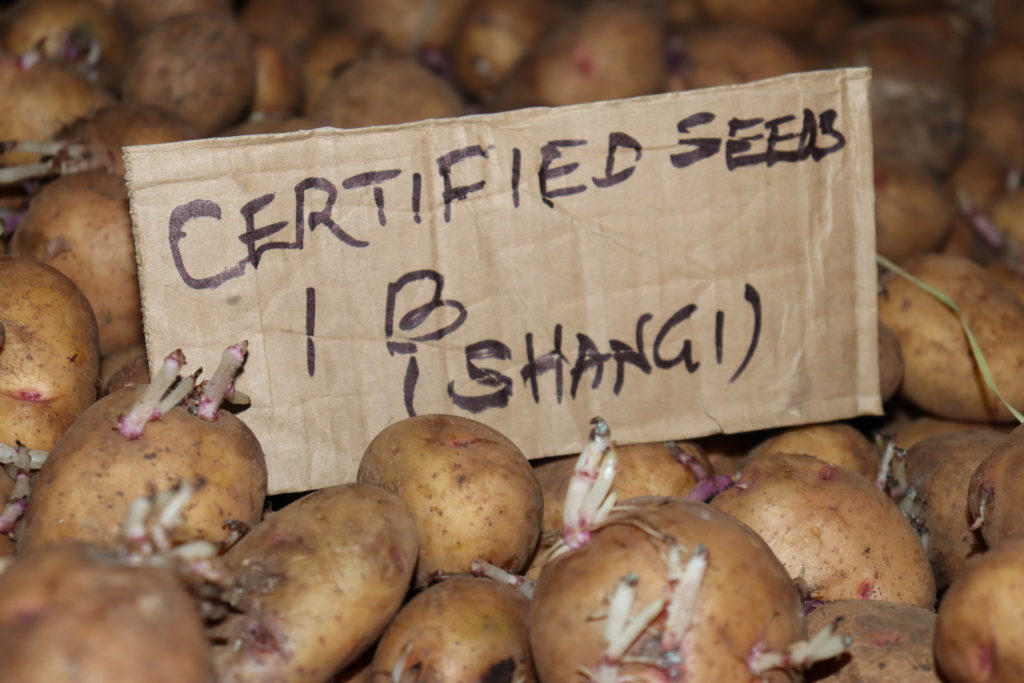
As a good agricultural practice, crop rotation has contributed to ensuring nutrients are replenished in the soils by alternating crops. Therefore, IFDC emphasizes managing soil fertility for improved production in quality and quantity of the produce – allowing farmers to get maximum production from their farms.

